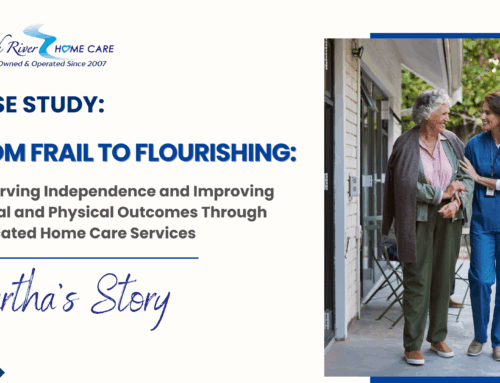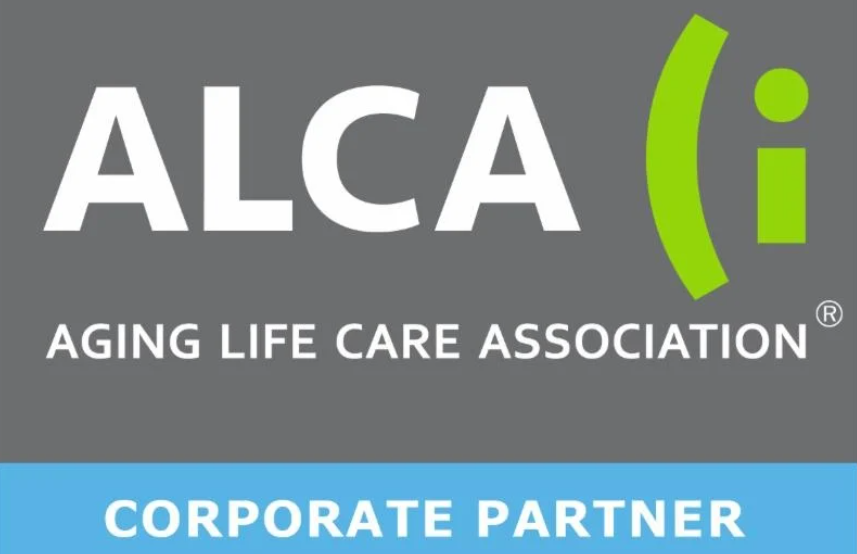As adults age, their bodies undergo various changes that can interfere with their ability to eat or stay hydrated. As one of the more common eating and drinking challenges, dysphagia, or difficulty swallowing, is a significant senior health issue that must be managed promptly and effectively. If you or an aging loved one is having trouble swallowing, read on to learn more about this common condition, as well as practical dysphagia management tips every senior and family caregiver in Norwell, MA should know.
What Is Dysphagia?
Dysphagia is a medical term used to describe difficulty swallowing food or liquids. While this condition can range from mild to severe and may affect individuals of all ages, dysphagia is much more common in adults 65 and over. Dysphagia can make it challenging for seniors to eat and drink, leading to malnutrition, dehydration, and other health complications if not treated properly.
What Causes Dysphagia?
Numerous factors can cause or worsen dysphagia, including aging, neurological disorders, stroke, head and neck injuries, dementia, and certain medical conditions, such as Parkinson’s disease and esophageal cancer. Additionally, medication side effects, poor dental health, and muscle weakness in the mouth and throat can also contribute to dysphagia in seniors.
Why Is Dysphagia Detrimental to Senior Health?
As a real game-changer for older adults and their families, dysphagia can significantly diminish a senior’s health and quality of life in these ways:
- Malnutrition: Difficulty swallowing can make it challenging for seniors to get the nutrients they need, leading to malnutrition and weight loss.
- Dehydration: If seniors have trouble swallowing liquids, they may be unable to stay adequately hydrated, which can lead to various health complications.
- Aspiration pneumonia: When food or liquids enter the lungs instead of the esophagus, it can cause aspiration pneumonia, a severe respiratory infection.
- Social isolation: Seniors with dysphagia may avoid social gatherings involving food, leading to a lack of socialization.
- Decreased quality of life: Dysphagia can impact a senior’s ability to enjoy meals and participate in social activities, affecting their overall quality of life.
Prioritizing Senior Health: Dysphagia Management Tips for Older Adults in Norwell, MA
For the above reasons, managing dysphagia is essential for maintaining a senior’s health and well-being. When available, family caregivers can play an active role in helping aging loved ones manage dysphagia and its complications. Here are six things to include in your dysphagia management strategy:
- Modify food and liquids: Dysphagic seniors may need to modify their diet by choosing soft, moist, and easy-to-swallow foods. Afflicted individuals may also benefit from thickening liquids to make them easier to swallow.
- Practice swallowing exercises: A speech-language pathologist or occupational therapist can recommend specific swallowing exercises to help strengthen the muscles used for swallowing and improve coordination.
- Eat slowly and mindfully: To reduce the risk of choking, encourage seniors to take their time when eating, chew their food thoroughly, and swallow slowly.
- Sit upright while eating: Sitting upright while eating can help seniors swallow food more efficiently and reduce the risk of aspiration.
- Use adaptive feeding tools: Specialized devices, such as utensils, cups, and plates, can help seniors with dysphagia eat and drink safely and independently.
- Stay hydrated: Seniors should drink plenty of fluids throughout the day to stay hydrated and help make swallowing easier.
- Seek professional help: Additionally, seniors and their families should consult healthcare professionals, such as physicians, speech-language pathologists, dieticians, or occupational therapists, to develop a personalized dysphagia management program.
Professional Home Care: Elevating Senior Health through Effective Dysphagia Management
When called upon, home care providers can play a critical role in supporting seniors with dysphagia and ensuring their safety and well-being. Here are several ways that professional in-home caregivers can help aging clients and their families manage dysphagia:
Meal Planning and Preparation
In addition to grocery shopping assistance, trained caregivers can help plan nutritious meals, including specially prepared foods that are easier for dysphagic clients to swallow.
Mealtime Monitoring and Feeding Assistance
In-home caregivers can closely monitor seniors during mealtimes, provide feeding assistance as needed, and ensure they are eating safely and comfortably.
Medication Management
Because certain medications may affect swallowing or interact with dysphagia symptoms, caregivers can help seniors stay organized with their medications and communicate concerns to healthcare providers.
Healthcare Team Communication
Professional caregivers can collaborate with speech-language pathologists, occupational therapists, dietitians, and other healthcare professionals to develop comprehensive dysphagia management strategies for clients.
Daily Oral Care
Proper oral hygiene is essential for preventing infections and maintaining oral health in seniors with dysphagia. In-home caregivers can assist clients with various personal care tasks, including daily oral care routines.
Emotional Support
Living with dysphagia can be challenging for seniors. In-home caregivers can provide emotional support, encouragement, and companionship to help seniors confidently manage their condition and lead more active and fulfilling lives.
Final Thoughts About Dysphagia and Senior Health
When not properly managed, dysphagia can significantly threaten a senior’s health, well-being, and independence. Thankfully, with effective management and support from loved ones, older adults with dysphagia can continue to eat safely and enjoy meals that meet their bodies’ nutritional needs. When called upon, professional in-home caregivers play a vital role in assisting seniors with dysphagia, helping them manage their daily routines, and providing much-needed socialization and emotional support.
Once loved ones experience swallowing difficulties, family caregivers must remember that early detection and intervention are key to preventing significant dysphagia complications. Working together, care team members can promote safe and effective eating practices for dysphagic seniors, empowering them to lead more active and fulfilling lives throughout their golden years!
Your Trusted In-Home Senior Health Partner in Norwell, MA
Helping an aging loved one manage dysphagia can be challenging when you’re busy or live far away. When you need assistance, contact North River Home Care in Norwell, MA. As a fully licensed and accredited home care provider, our compassionate caregivers can step in and serve as an extended family in your loved one’s home. We offer a comprehensive lineup of Personal Care services, including 24-Hour Home Care, Companionship and Personal Care, Alzheimer’s or Dementia Home Care Services, Rehabilitation Home Care, Respite Care, and Veteran Home Care.
While assisting clients in Norwell, MA, South Shore, and MetroWest MA, our agency’s focus is on maintaining their quality of life, dignity, self-esteem, and independence. For your added convenience, all our home care services can be individually personalized into an affordable package when and where you need them! Please visit North River Home Care now to learn more about how we help clients and their families prioritize senior health or schedule a free consultation for someone in our service area.










